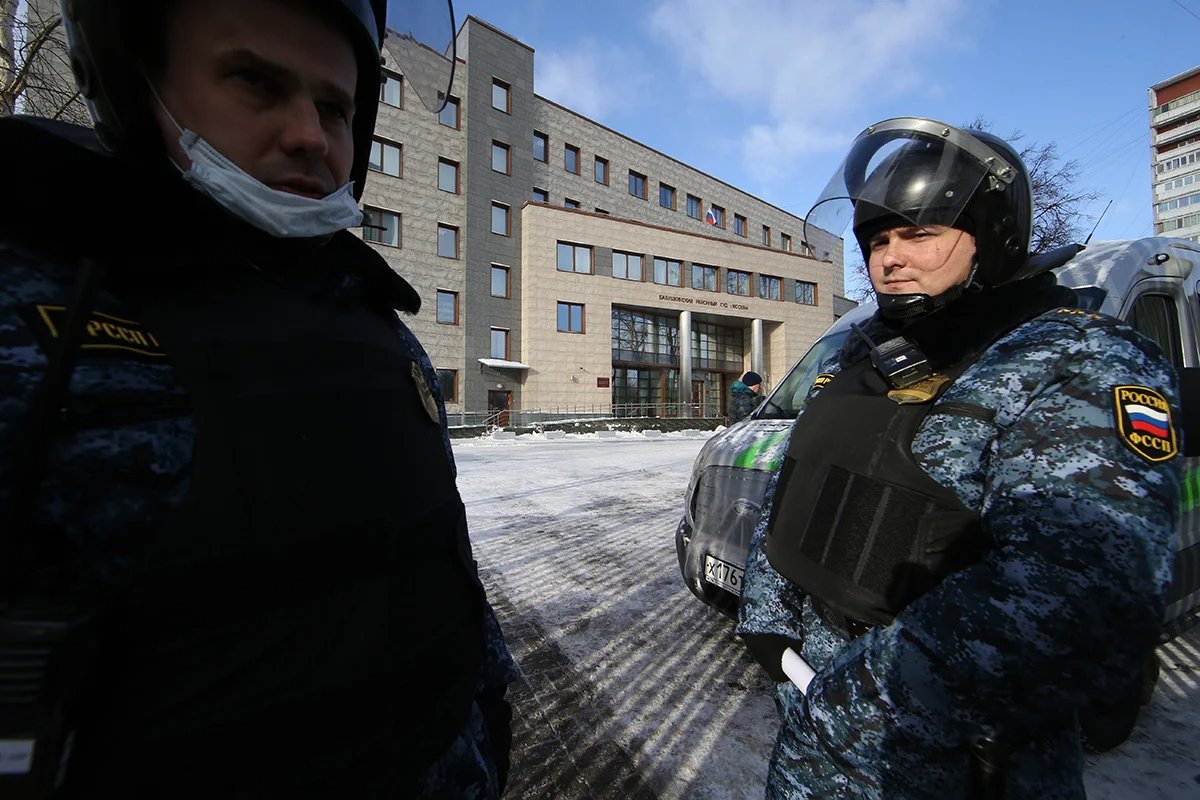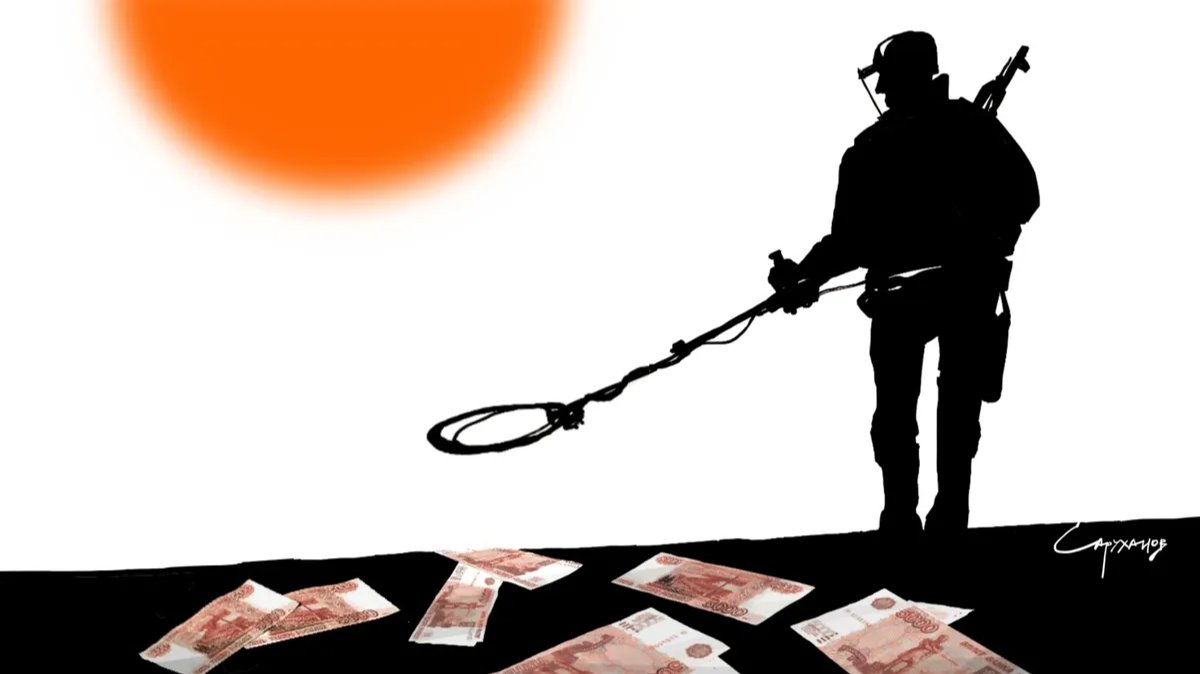It’s a sad reality of contemporary Russia that military service is one of the few realistic paths out of poverty for many. Earlier this year, a Novaya Europe investigation found that in many parts of the country a 35-year-old man working until his retirement at 65 can expect to earn less in that time than the total sum in compensation his family would be eligible for if he died fighting in Ukraine.
By making death more profitable than life, the army has opened itself up to the some 13 million Russians who are in debt. The chance to get yourself back into the black is very attractive — if, of course, you survive your tour of duty and the bailiffs don’t put your apartment under the hammer before you get the chance to repay your creditors in full.
When you visit the Federal Bailiff Service’s website, you’re immediately greeted by an announcement of the suspension of all court orders against debtors who have signed a contract with the Defence Ministry.
As long as you are listed as a “participant in the special military operation”, your car or apartment cannot be seized, your bank account cannot be frozen, and you will not lose your right to travel abroad.
Those in debt are the latest group to be targeted by Russia’s Defence Ministry in its permanent hunger for new recruits to fight in Ukraine. Instead of paying off debt, Russians are being offered the chance to wipe their slate clean by protecting the Motherland from fabricated attacks by Ukrainians.
In October, a woman from the Siberian city of Krasnoyarsk with two children, recounted how her bank passed an outstanding 800,000-ruble (€8,200) loan to the Federal Bailiff Service (FBS) for collection. The bailiffs sent her a flyer for enlistment in the military, stressing that if she signed up she would be able to earn sufficient money to cover her debts, despite having no military experience. She turned down their offer once she realised that there was no guarantee the state would pay the millions of rubles in compensation to her family in the event of her death, though her debts would most certainly be passed on.

Photo: Mikhail Svetlov / Getty Images
Criminals court ordered to pay damages to their victims have their debts forgiven, whether temporarily or permanently. Prisoners who signed contracts with the Wagner Group and then the Defence Ministry can return home once their military service is complete. They are pardoned by Putin and return with a pristine criminal record, while bailiffs do not demand the repayment of these debts while the war is ongoing.
Establishing authority
By the 1990s, the mechanisms for enforcing court orders were proving hopeless as society spiralled into chaos. The nascent Russian state’s monopoly on enforcement had been broken by criminal groups who proved far more capable of producing results. The bailiff service was only revived in 1997, when the FBS was charged with enforcing court orders.
Social justice remains a distant dream, however. According to the annual report of American NGO World Justice Project, Russia ranks 113 of 142 countries when it comes to the rule of law, lower than Zambia, Lebanon and Guatemala. And yet despite the constant growth of the FBS, which has even started arming itself, Russia slips further down the table each year.
Sergey, an employee of Yekaterinburg’s regional bailiff service explains to Novaya Europe, “If you don’t discuss the possibility of debtors signing up for military service, your neck is on the line. At first, I couldn’t believe anyone would agree, but then several people actually signed up, people with 300,000 rubles (€3,100) or more of debt in unpaid alimony. But, honestly, which of these guys is a real soldier? They’re lowlifes.”
Join us in rebuilding Novaya Gazeta Europe
The Russian government has banned independent media. We were forced to leave our country in order to keep doing our job, telling our readers about what is going on Russia, Ukraine and Europe.
We will continue fighting against warfare and dictatorship. We believe that freedom of speech is the most efficient antidote against tyranny. Support us financially to help us fight for peace and freedom.
By clicking the Support button, you agree to the processing of your personal data.
To cancel a regular donation, please write to [email protected]

